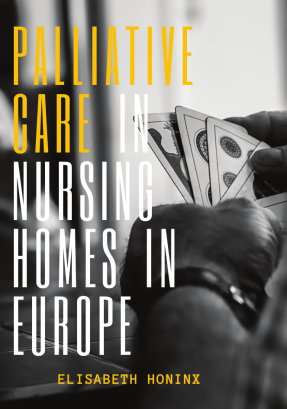Author: Elisabeth Honinx
Date: 01-03-2021
Promoters: Prof. dr. Lieve Van den Block (VUB), Prof. dr. Luc Deliens (VUB), Co-promoters: Dr. Tinne Smets (VUB), Prof. dr. Ruth Piers (Ghent University)
SUMMARY OF THE DISSERTATION
An increasing number of people are dying in old age, often after an extended period of chronic illness and disability, combined with complex end-of-life care needs. The need for good palliative care has therefore increased significantly. Especially in nursing homes, there is a need for good support during the last years, months and days of residents. To monitor and improve the quality and access to palliative care, we conducted the PACE project ('Palliative Care for older people in nursing homes in Europe'). The first study of this project maps the quality of palliative care and quality of dying in nursing homes in six European countries. We identify the characteristics of nursing home residents, staff and the facility and identify staff attitudes towards palliative care, the structural organization of palliative care and the prevalence of potentially inappropriate treatments and hospitalizations at the end of life. Within the second study of the PACE project, the research team developed the 'PACE Steps to Success' program, which aims to improve palliative care in nursing homes in Europe. This program facilitates organizational change and guides staff in developing their roles, knowledge and skills in palliative care. The program consists of six steps: from discussions with the resident and/or family to monthly reflective de-briefings for staff after a death. This training program was tested from 2014 to 2018 in 72 nursing homes in 7 countries.


